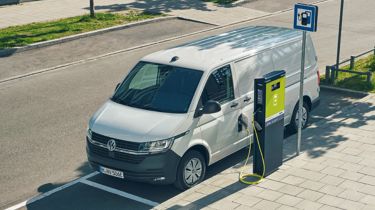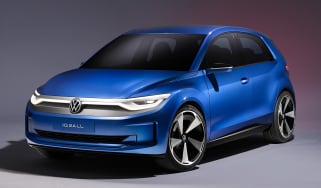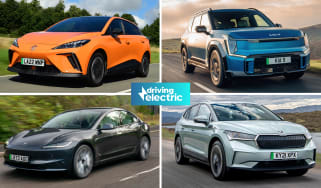Electric van tax explained
Fully electric cars are exempt from paying Vehicle Excise Duty (VED, also known as road tax), but how does the law apply to electric vans?

Vehicle Excise Duty (VED) – commonly known as road tax – applies to any road-registered vehicle in the UK. The rate of VED depends on a number of different factors, including the vehicle's CO2 emissions, its powertrain and its intended use.
For cars, VED is based on carbon dioxide (CO2) emissions measured from the tailpipe. In short, the more a car pollutes, the more it's taxed; electric cars are exempt from road tax, while hybrid and internal-combustion models are on a sliding scale depending on emissions.
However, for vans – also known as light commercial vehicles (LCVs) – the law works slightly differently. Instead of a progressive rate, LCVs are charged a flat rate, which depends on when your van was first registered. For clarification, a van is a light commercial vehicle with a maximum gross vehicle weight (GVW) of 3,500kg.
New internal-combustion-powered vans are liable for road tax of £275 a year, while those registered between 1 March 2003 and 31 December 2006 pay £140 a year. The same £140 fee also applies to petrol, diesel or hybrid vans registered between 1 January 2009 and 31 December 2010.
Electric van road tax (VED)
The good news is that electric vans are zero-rated when it comes to VED – for now, at least. The Government has given van buyers the same incentives to go green as it has car buyers, so annual road tax for all fully electric, zero-emissions vans is £0.
However, it’s important to note the discount only applies for fully electric vans. Hybrid and plug-in hybrid vans are still subject to the annual £275 fee – and the exemption for electric vans is unlikely to last forever, as they make up an increasingly large proportion of vans on the road.
Company van tax (van benefit charge)
If your company provides you with either a diesel or electric van for private use, it doesn't face company-car tax as a passenger vehicle would. Rather, vans are subject to a 'van benefit charge'. This has been set at a flat rate of £3,500 during the 2021/22 and 2022/23 financial years for combustion-engined vans, however the rate for fully electric vans is zero.
Most Popular

Volkswagen ID.2 will be a VW Polo for the electric age and we’re buzzing

New Kia Niro and EV6 ‘Horizon’ special editions bring value to brand’s EV line-up

Top 10 best electric cars 2023/2024